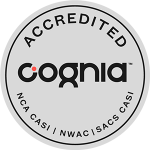Most likely, social media is a pretty strong influence in your teen’s life. However, studies have continued to prove that unregulated social media has a negative impact on young people, including acting as a detriment to their mental health. What’s a parent to do? You don’t want to completely ban social media because then your teen won’t know how to approach it responsibly when they are on their own, and you don’t want your teen to have secret social media accounts either. Northgate Academy has a few tips about how to help your child build healthy social media habits.
First of all, talk about social media openly in a nonjudgmental manner so that your teen knows they can trust you. Teens need a safe space to talk about online issues. If all you have to say about social media is negative, then if they face any sort of difficulty online, they are likely going to avoid telling you. No teenager wants to hear “told you so” by their parents, so keeping a more open mind about social media topics will help your child know that they can trust you. As a result, they’ll be more likely to talk to you about any questions or issues they’re having online.
You can model this behavior for them by talking about both the positive and negative experiences you’ve had on social media and the ways you’ve handled them. You probably have more experience online than they have, so don’t be afraid to talk about any mistakes you’ve made or any lessons you’ve learned.

Set Clear Boundaries
Setting reasonable, consistent boundaries is always a good idea once your child has their own tablet, laptop, or phone. It will be up to you to decide what those boundaries look like for your family, but sticking to them and following the rules yourself is as important as having the boundary set in the first place. Phones should be put away during schoolwork and during family time such as meals or when family friends or relatives are visiting.
Giving your child time limits, setting specific times for digital breaks, and using the Do Not Disturb feature on their phone all teach your young person how to be responsible with all aspects of their online life. Teach them how to use their notification settings, and you should definitely take phones away at bed time – yes, even for teens.
If you find that your teen is discovering work arounds to the boundaries you’ve, it will be time to use apps that track phone and social media use. In those extreme cases, they might be using social media as a coping mechanism, so you will also want to teach them much needed alternative coping skills so that they are not burying themselves in their phones or on social media.
Another boundary you can help your child set for themselves is teaching them to get rid of accounts that make them feel bad about themselves or that add bad feelings or drama to their life. By talking to them about the times you’ve had to make those “cuts,” they can see that it’s a normal part of life online. If an account is causing any negative mental health effects, it needs to go. Real friends will understand this, and strangers won’t notice.
Social media can be an amazing agent for positivity, growth, and connection. Teach your teens about using social media for positives. You can do this by doing the same yourself. Yours and your teen’s social media should be treated as the real world that it is. The same things are appropriate or not appropriate behaviors on and offline. By teaching your teen to share positivity, you’re helping them build a good online reputation for themselves.
Teach Them Moderation
Teach them to think before they post. This means that they should be wary of what they share. Remind your child not to overshare, even if they think the only people who will see what they post are their best friends. If you don’t want everyone to know it, you shouldn’t post it on social media.
Next, demonstrate (and teach) how to use social media in a positive way by being kind and engaging in empathy. Show them how you and your connections build each other up, and encourage them to use social media platforms to do the same for their community of friends. They can help boost positive messages, set an example for younger people, and send encouraging personal messages to friends instead of just “liking” as many posts as they can without actually interacting with the person. Social media can be a convenient tool to spread positivity and forge strong bonds of community.
Social media isn’t just a form of communication; it has a long-term impact on your teen’s life. It influences their social status and records the events of their daily life. It’s serious business in the eyes of most teens, so teaching them how to use it both positively and responsibly is one of the best modern life-lessons you can share.




